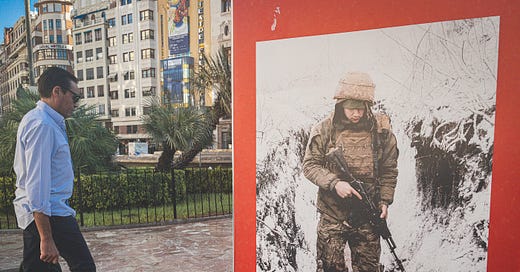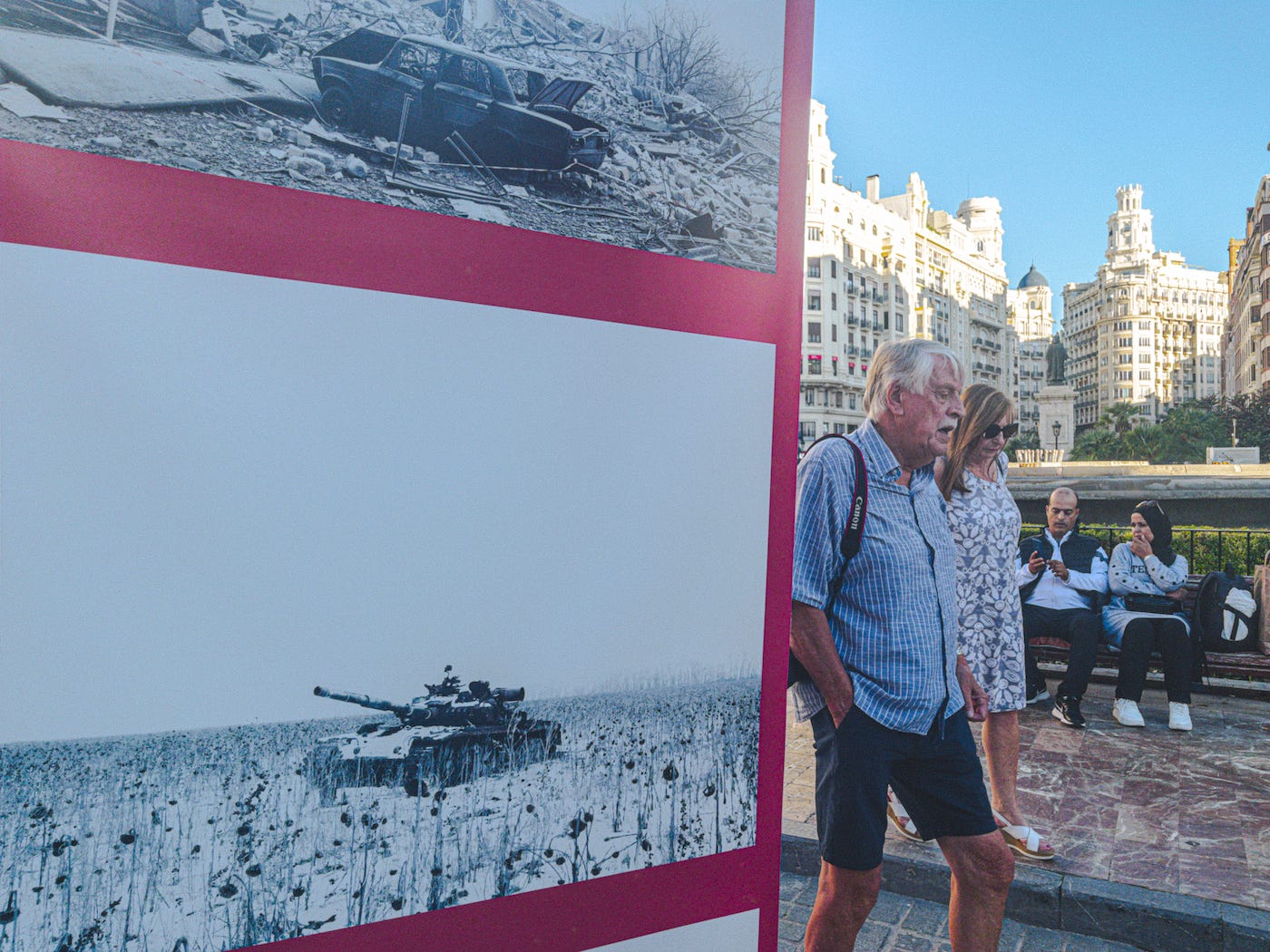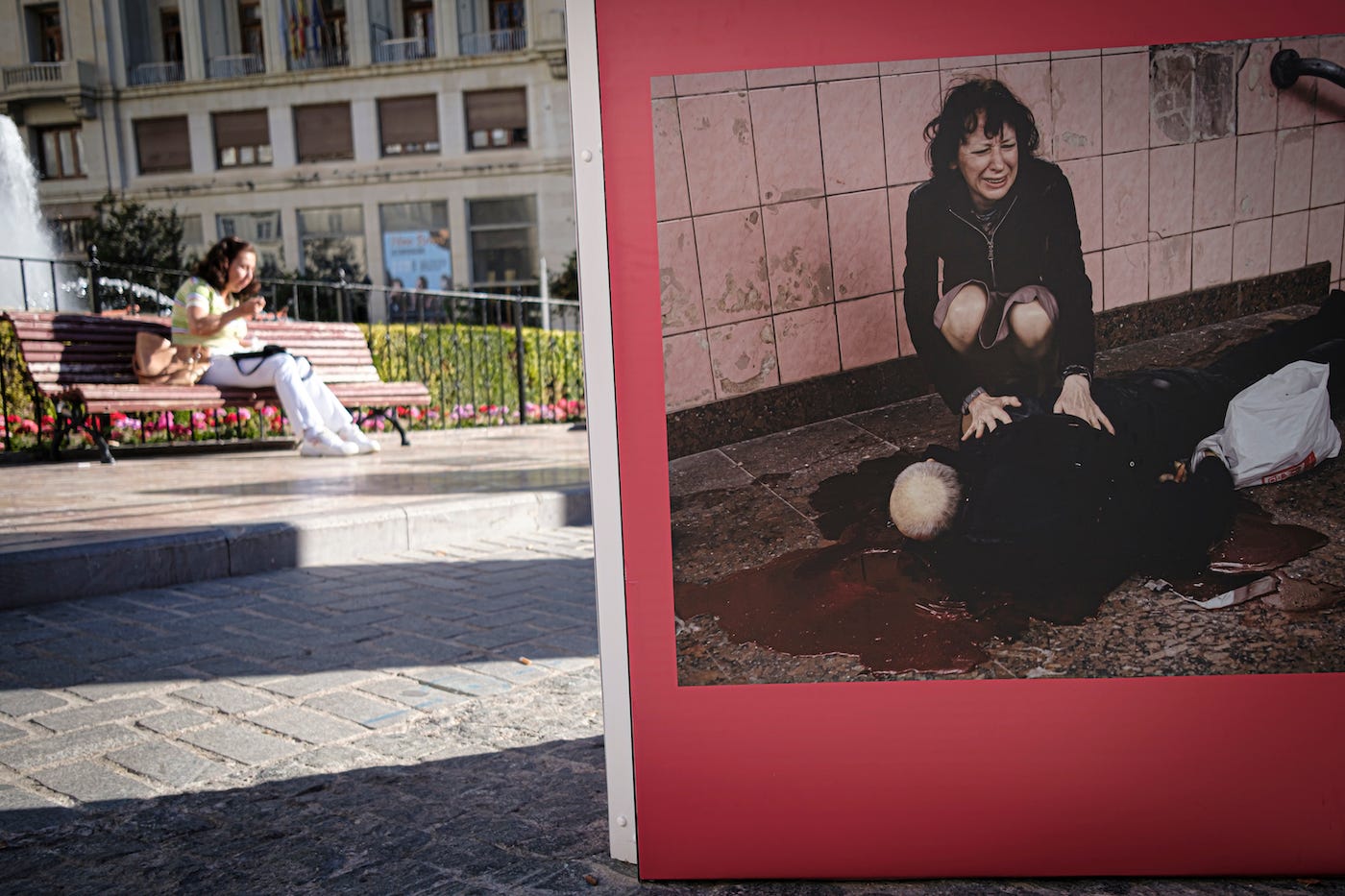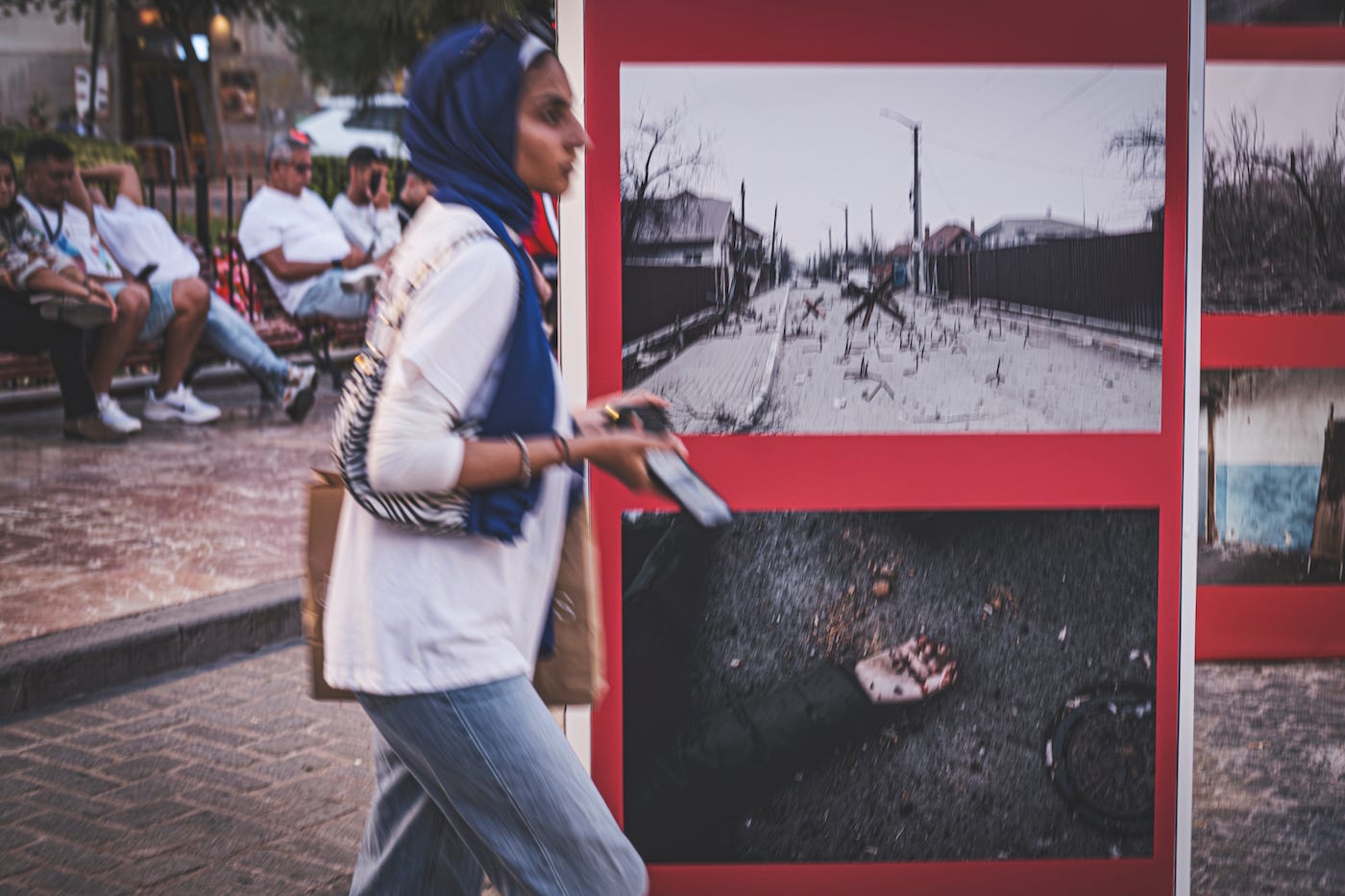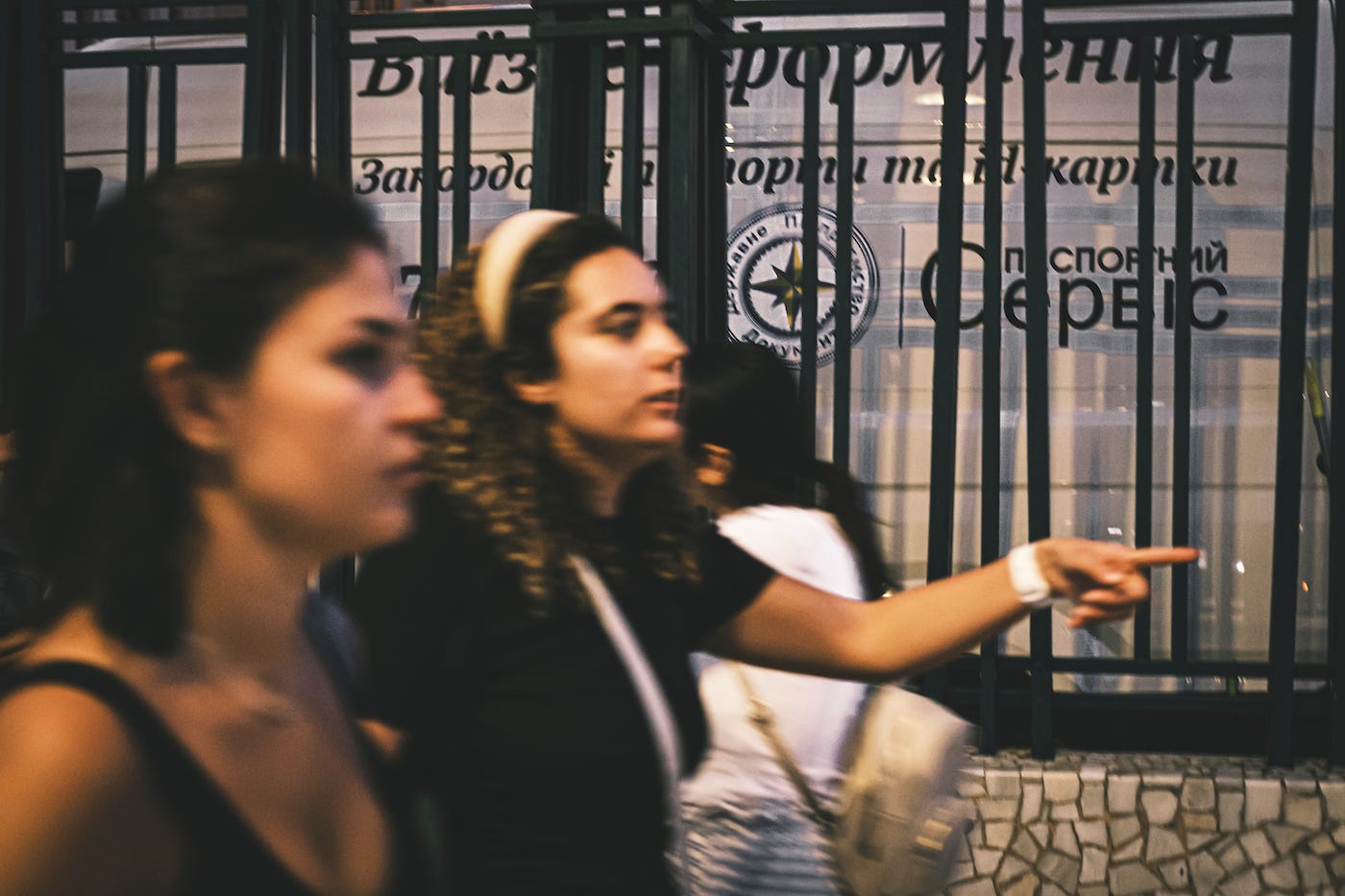By Joel Schalit
It was an appropriate installation for a church. Surrounded on three sides by an outdoor exhibit of war photography, the graveyard-like stand-ins were unmistakable.
Featuring images of the Ukraine conflict since Euromaidan, the Genezerathekirsche (Church of Galilee) was a perfect location for highlighting the barbarism close by.
Located in Berlin’s heavily Middle Eastern borough of Neukölln, in the Schillerkiez neighbourhood adjacent to Hitler’s one-time airport, Tempelhof, it fit in perfectly.
I hadn’t planned on photographing the exhibit, but I noticed an Arab family slowly taking it in.
I wondered whether they were Syrians and had survived Russia’s heavily criticised carpet bombing campaigns.
My gut said yes. They were pointing out Russian weaponry with traumatised looks on their faces as though they were familiar.
This might very well have been Damascus, and the Ukrainians might have been them.
I immediately pulled out my camera and started shooting. Neither the Arab family nor the Europeans who followed them shooed me away.
In Valencia for a Battleground project, I stumbled across a similar exhibit last Monday while looking for a place to get my morning coffee.
Located in Plaza del Ayuntamiento, these pictures, by Ukrainian photographer Maxim Dondyuk, cover the Russo-Ukrainian war and its civilian victims.
A mix of upscaled iPhone 13 and Fujifilm X-Pro 3 photos (I returned to the site later with my camera,) the photos I took remind me a lot of what I encountered in Berlin.
As I did when I was in Neukölln, I shot the photos in context, capturing bystanders’ body language as they either engaged with, ignored or were near images of war.
I have a habit of shooting photos like this. I’m an Israeli national and was born five months before the Six-Day War in 1967. Every local conflict that’s been fought in my lifetime has left its mark on me.
Even though I evaded the draft during the First Intifada - an especially tough task for someone of my generation in the late 1980s - I gravitate towards war photography like someone who still served.
War is like that. It impacts entire societies, if not actively, passively, always claiming your conscience. Refusing military duty only keeps us from battlefields, not conflicts.
I’m also of partial Ukrainian background. My paternal great-grandmother was from Poltava and met my Litvak great-grandfather in Odesa.
This war has reminded me of them like none other.
****
Joel Schalit is editor-in-chief of The Battleground. Photographs courtesy of the author. All rights reserved.

